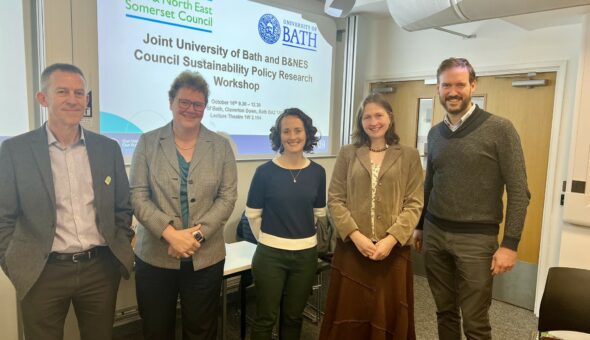Many of you will know that the University intends to grow its graduate student population over the coming years. One part of that population, which is very significant for our research, is our body of doctoral students. These students fall within my remit as PVC-R.
I’ve supervised doctoral students without a break throughout my working life, and it’s been one of the greatest pleasures of being in academia. Doctoral students are typically highly educated, very bright, and well-motivated. Their development depends strongly on the environment that they find themselves in, and it is our responsibility – as an institution, as supervisors, and as administrators – to ensure that our students are provided an environment which will best enable them to reach their full potential. I have been asked – guided by thinking from the Faculties/School and by student opinion – to consider ways in which our doctoral student provision can be improved. The remit is to take a broad view of what we do now, and consider how we might do it better.
I’ve quickly come to the view – supported by the Deans and by colleagues in the Vice-Chancellor’s Office, as well as be feedback from our student body – that there is room for change leading to improvement. What might such change look like?
We’d like to form a stronger culture around our doctoral students. To achieve that, we’d like to create a single identifiable home for our doctoral community – something like a doctoral college. The intention would be that without weakening the bonds between the students and their departments or research groups, we will develop a community of students engaged in doctoral study who will share common experiences, learn from one another, make lasting contacts across our disciplinary mix and feel as if they have a genuine home at our University. We will also be providing a natural pathway to help students to engage with the University, and both students and the University would benefit from the improved communication that would be possible.
Of course, there is a wide range of issues around this vision, about the different aspects of our administrative and academic provision, and how these fit into the new picture. Over the last few years our undergraduate student numbers have increased in a measured way, and the administrative systems we use for them have been developed and refined to cope with this increase. We have seen the effectiveness of these systems confirmed through feedback from students.
To what extent can we learn from that experience to improve systems for our postgraduate and doctoral students? In putting in place an overarching structure for doctoral students, how can we manage the need for continuing responsibility for supervision at Department level? How can we maintain engagement with monitoring and progression of students at a Departmental and faculty level whilst ensuring effective oversight at the level of the Doctoral College? Through continuing discussions I will identify answers to these and similar questions in the coming months
Other news. Dr Mehdi Boussebaa, School of Management, has won the International Research Mobility Award from LabexMed, an inter-disciplinary centre of excellence coordinated by the Maison Méditerranéenne des Sciences de l’Homme at Aix-Marseille Universite, one of France’s most prestigious universities.
Oliver Walton will be part of a team that has received an ESRC grant worth £450,000 over two years to research war to peace transitions in Sri Lanka and Nepal. The grant will support a research team made up of researchers from the Centre for Poverty Analysis, Sri Lanka, the Martin Chautari Institute and International Alert. Meanwhile, James Copestake, Fiona Remnant and Max Nino-Zarazua secured an ESRC-DFID impact engagement grant of £73,782 to promote the use of the QuIP (qualitative impact protocol) among social impact investors. Congratulations to them and other grant winners over the last few months.


